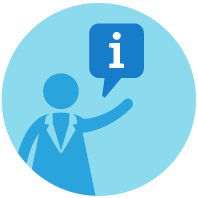Supporting Women Entrepreneurs

Do women face more difficulties in self-employment and business-ownership than men do? Research indicates that globally, there are more barriers to entry for women in terms of starting a business.
In the Philippines, specifically, women have more difficulty starting new businesses and women are also more likely to start very small businesses that are also less secure as a result of systemic problems. There are two significant barriers that women entrepreneurs face:
- Systemic and unconscious biases embedded within the start-up and entrepreneurial eco-system
- The above is paired with social and cultural norms that position women as the primary parent. Women have historically been faced with barriers to career advancement as a result of their gendered roles in family planning
Overall Trends on Women Entrepreneurs
 Here are some trends identified by the Philippines Commission on Women (PCW):
Here are some trends identified by the Philippines Commission on Women (PCW):
- In the Philippines, not only is the bulk of the poor composed of women; 95 percent of microenterprises involve women.
- More Filipino women are more active in starting a business than men
- Microenterprise development is a viable strategy for women's economic empowerment
- Women's economic empowerment supports the fulfillment of national and international commitments
Commonly Identified Barriers
The Philippine Commission on Women (PWC) has identified the following barriers:
- Discrimination into lower-paying jobs
- Inadequate access to and control over production resources and markets
- Lack of market-driven skills and knowledge
Opportunities, Approaches, and Initiatives
Toolkits to help businesses tackle unconscious bias:
Resources for Women in the Philippines
- ASEAN Women Entrepreneurs Network
- Philippine Commission on Women
- SheMeansBusiness
- Women’s Business Council Philippines
- Kickstart
- Women Who Code
- Female Foundry
- Goldman Sachs: 10,000 Women
As explained by Dr. Sarah Saska, unconscious bias refers to the information, attitudes, and stereotypes that inform our subconscious and dictate the process by which we take these mental shortcuts. Unconscious bias is a nexus of attitudes, stereotypes, and cultural norms that we have about different types of people. Therefore, embedding diversity and inclusion strategies into your small business planning (such as hiring and promoting women entrepreneurs) will mean your business will have a better chance of succeeding long-term (Phillips, 2016). Companies that understand their unconscious bias are:
- More innovative
- Smarter
- Better decision makers
- Solve problems more effectively
- Understand the needs of a diverse & global customer base
When it comes to hiring talent, how can you work to ensure that you’re hiring diverse talent?
- Slow down your decision making
- Recognize what you currently have
- Consider what is missing
- Strive to make it better
Approaches:
- Limit job descriptions to “must-have” qualities
- Revamp the language in job descriptions for greater inclusivity
- Remove names and other identity signifiers from job applications
- Standardize job interview questions
Success Stories

The MasterCard Index of Women Entrepreneurs rated the Philippines 9th in a global study of conditions conducive to the development of female entrepreneurs. The MasterCard report gave the Philippines a score of 68.0 on a scale of 100. The report’s index measured the “top 10 markets with the strongest supporting conditions and opportunities for women to thrive as entrepreneurs.”
Fifty-year-old Vivencia Mamites, mother of three from Davao del Sur, says her life was drastically changed by micro-entrepreneurship. She learned the ropes of promoting, selling, and increasing the value of her products.
The Good News Pilipinas website has posted a list of 20 Filipina entrepreneurs that received awards from Go Negosyo:
- Aya Fernandez, entrepreneur
- Jeannie Javelosa of Great-Women and ECHOstore
- Mica Tan of MFT Group of Companies
- Kathleen Yu founded Rumarocket
- Marcelina Ace Itchon is the president and CEO of Aspen Philippines
- Flor Tarriela chairs Philippine National Bank
- Abdulia Austria started her entrepreneurial journey with just P600
- Angelene Calungcaguin founded The Make Peace Bakery
- Lydia Codiñera formed a company called Samahang Tubig Maynilad
- Edilee Omoyon of Milea Bee Farm started her business because of her son’s skin condition
- Merle Paete started her own pili processing company with only P2,000
- Mary Grace Arboleda-Young, president of Cordillera Coffee
- Olive Puentespina started experimenting with goat’s milk in 2005 which then led to the establishment of Malagos Farmhouse
- Rissa Mananquil-Trillo co-founded Happy Skin which manufactures skin-friendly cosmetics
- Warblitz Martinez is the president of the Aqua Peace Farm
- Armanda Battad, through her Amanda’s Marine Products, produces dried fish products
- Zarah Juan discovered the concept of reusable bags as a substitute for plastic bags and, with the help of her husband, opened Green Leaf Bags
- Edelyn Canero owns Edelyn’s Homemade Nuts; she expanded her product line by producing savory snacks of Pampanga
- Dr. Lourdes Montinola is the chairman emeritus of Far Eastern University
- Helen Yuchengco-Dee is the chairperson of the Rizal Commercial Banking Corp
